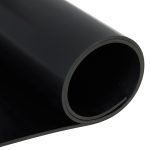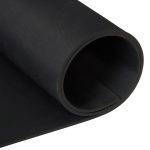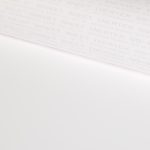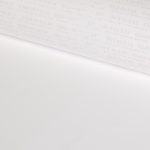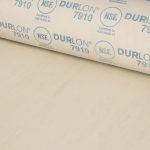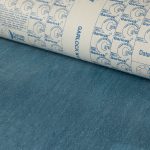NSF-61 Approved Gasket Material; Key Information You Should Know
Choosing the right gasket materials can be confusing and often requires a lot of research. Their importance in industries where safety and regulations matter is critical. This article covers what is NSF-61, why it is important, its benefits, the types available, and practical tips for choosing the right material.
Understanding NSF-61
NSF/ANSI 61 is a standard set by the National Sanitation Foundation that ensures materials and products utilized in drinking/potable water systems are safe and do not pose any health risks. It set limits on the level of contaminants that can seep into water from products such as pipes, fittings, and sealing materials like gaskets. Having a gasket material that meets NSF-61 standards indicates that it has been tested and certified for usage in drinking water applications.
Benefits of NSF 61 Approved Gaskets
- Health and safety: The certification guarantees that the gasket material is safe and free from harmful substances that could pose health risks.
- Regulatory standards: It confirms compliance with international regulations that set the standard.
- High performance: NSF-61 gaskets are designed to withstand the demanding conditions of water systems, including exposure to various chemicals, temperatures, and pressures.
- Uses for different applications: NSF-61 gaskets are versatile and can be used in a wide range of applications. whether for residential, commercial, or industrial purposes, these gaskets provide a reliable sealing that meets the requirements of different industries.
- Cost savings: High-quality, certified gaskets reduce the need for frequent replacements and repairs, thus saving money over time.
Different Types of NSF 61 Approved Gaskets
Here are several common materials for NSF-61 approved gaskets from trusted brands and suppliers. These gasket materials were tested and passed for NSF 61 certification.
EPDM Rubber
EPDM (AB-576) has excellent resistance to heat, ozone, and sunlight. It has color stability, superior resistance to cold and hot water, good resistance to alkalis, acids, and oxygenated solvents, and very good flexibility at low temperatures.
EPDM (Garlock® 98206) is a sulfur-cured elastomer that meets the stringent NSF Standard 61 requirements for potable water products. It offers excellent resistance to weathering, ozone, and UV exposure, making it versatile and ideal for gaskets, washers, and weather stripping.
PTFE
INERTEX® SQ-S is made from 100% expanded virgin PTFE and is great for sealing under low torque conditions, making it one of the tightest sealing PTFE sheet materials. It is also available as unbranded/red ink-free, to meet NSF/ANSI 61 and USP Class VI specifications standard for use in potable / drinking water applications.
INERTEX® SQ-S “V” is a sturdy gasket sheet designed to enhance the rigidity of the SQ-S Gasket Sheet while maintaining its superior sealing capabilities. It’s perfect for challenging installation scenarios where strength is essential. Additionally, it comes in an unbranded, red ink-free version to comply with NSF/ANSI 61 and USP Class VI standards for use in drinking water applications.
Compressed Fiber Sheets
Durlon® 7910 is a high-quality, commercial-grade compressed sheet gasket material designed for moderate service conditions. It is certified to meet NSF/ANSI 61 standards for potable water applications from temperatures 23°C (73°F) to 82°C (180°F). It is suitable for use with potable water, steam, oil, water, mild alkalis and acids, hydrocarbons, and solvents. Ideal for the water treatment, reclamation, wastewater, and plumbing industries.
MULTI-SWELL™ 3760-U is another solution for lightweight flanges and covers plagued by oil and water leaks in industrial facilities. Made with synthetic fibers and a proprietary rubber binder. This gasket absorbs the inside edge, swells, and creates a tighter, long-term seal, unlike traditional vegetable fiber and cork gaskets that allow wicking. It meets NSF/ANSI 61 specifications and is suitable for potable (drinking) water applications.
Tips for Choosing the Right Gasket Material
Selecting the right gasket material involves several factors:
- Consider the environment where the gasket will be used, including the temperature and chemical exposure, and determine the operating pressure of the system.
- Ensure the gasket material meets NSF 61 standards and any other relevant regulations. Always check with the manufacturer’s certification.
- Assess the durability of the gasket, considering its resistance to wear and tear, and its flexibility to accommodate system movements.
- Engaging with gasket specialists to have customized recommendations for your specific application needs.
Choosing the right gasket material depends on the specific requirements of your application. By understanding the properties of these gasket materials, you can make an informed decision and ensure that your gasket meets the needs of your application.
Custom Gaskets specializes in creating custom-shaped gaskets of any size to meet your needs. With our advanced CNC machine and over 65 years of experience, we deliver top-quality sealing products with precision. Whether you need low or high-volume production, we’re here to support your ideas and provide the perfect sealing solutions for your applications.

